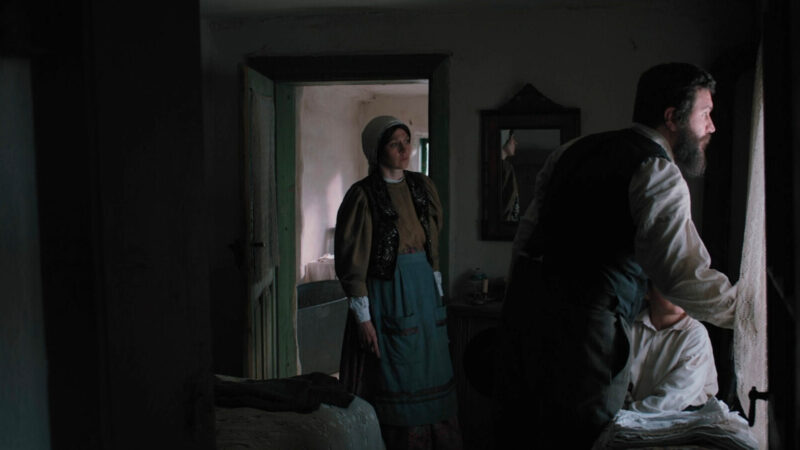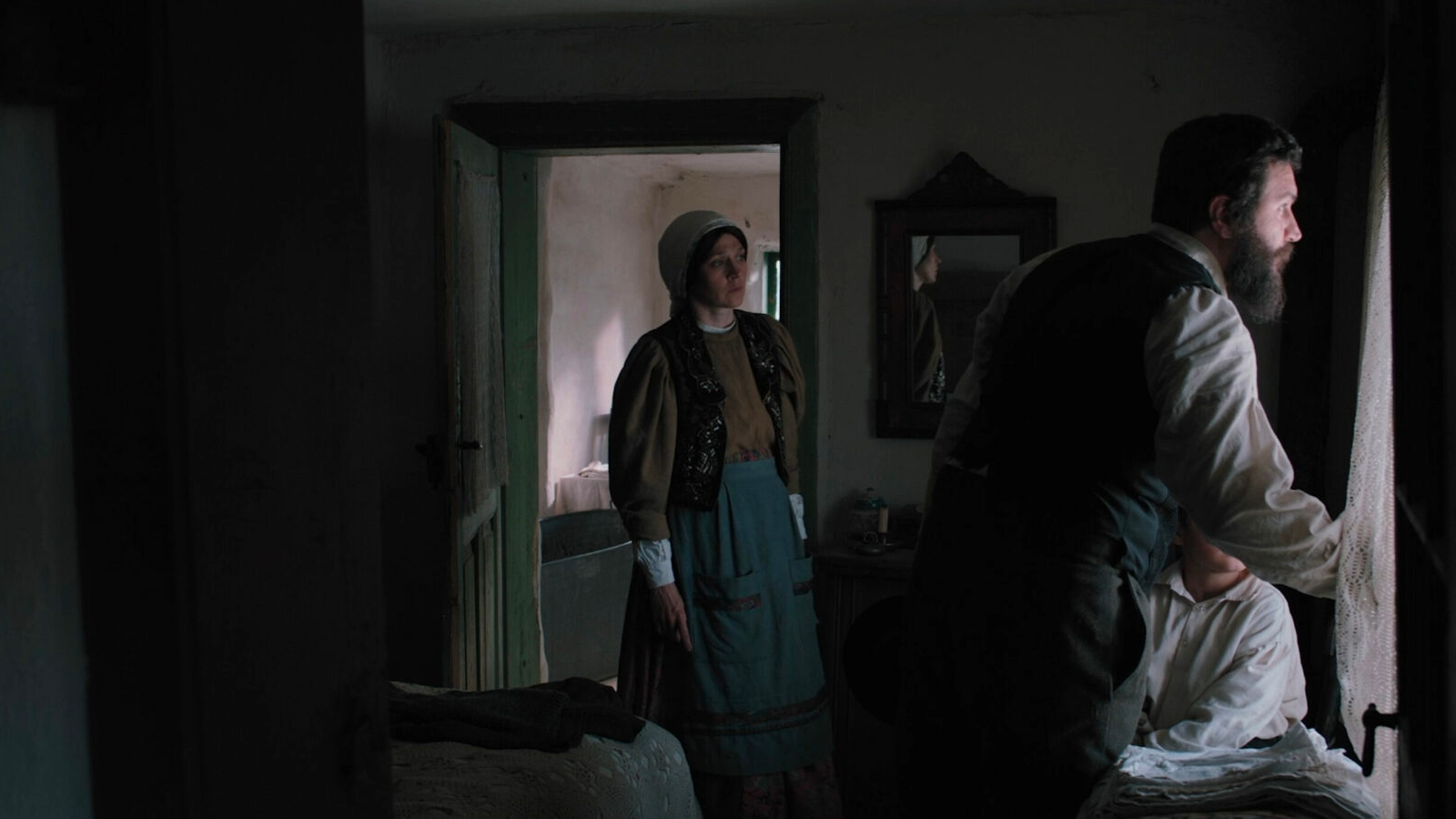

Rural Romania towards the end of the 19th century: together with his family, Leiba, a Jew, runs a little inn on the banks of an expansive lake. Life here is animated: people from the village or passing through stop in to eat, drink and enjoy the view. At first glance, they seem largely satisfied, yet behind their complaints about the "quality" of the chicken soup and Leiba's "sour" wine, there lurks, quite obviously, a deep-seated anti-Semitic animosity. The villagers find justification for their prejudice in their Christianity, while travellers from the city prefer to reference pseudo-scientific interpretations of the theory of evolution. Leiba is persistent in fending off this racist abuse, at least verbally, though he can't do much more about it. In private, he jokes with his wife Sura about chastity and tells his son Eli about the new invention of ice cream, full of fascination – but in public, religion eclipses all other topics. So it is that what starts as a small argument with Gheorghe, an employee of Leiba's, escalates uncontrollably as Holy Week goes on. Calmly, in profound, static images, Andrei Cohn stages an oppressive drama about powerlessness in the face of deep-rooted hatred.
Rural Romania towards the end of the 19th century: together with his family, Leiba, a Jew, runs a little inn on the banks of an expansive lake. Life here is animated: people from the village or passing through stop in to eat, drink and enjoy the view. At first glance, they seem largely satisfied, yet behind their complaints about the "quality" of the chicken soup and Leiba's "sour" wine, there lurks, quite obviously, a deep-seated anti-Semitic animosity. The villagers find justification for their prejudice in their Christianity, while travellers from the city prefer to reference pseudo-scientific interpretations of the theory of evolution. Leiba is persistent in fending off this racist abuse, at least verbally, though he can't do much more about it. In private, he jokes with his wife Sura about chastity and tells his son Eli about the new invention of ice cream, full of fascination – but in public, religion eclipses all other topics. So it is that what starts as a small argument with Gheorghe, an employee of Leiba's, escalates uncontrollably as Holy Week goes on. Calmly, in profound, static images, Andrei Cohn stages an oppressive drama about powerlessness in the face of deep-rooted hatred.